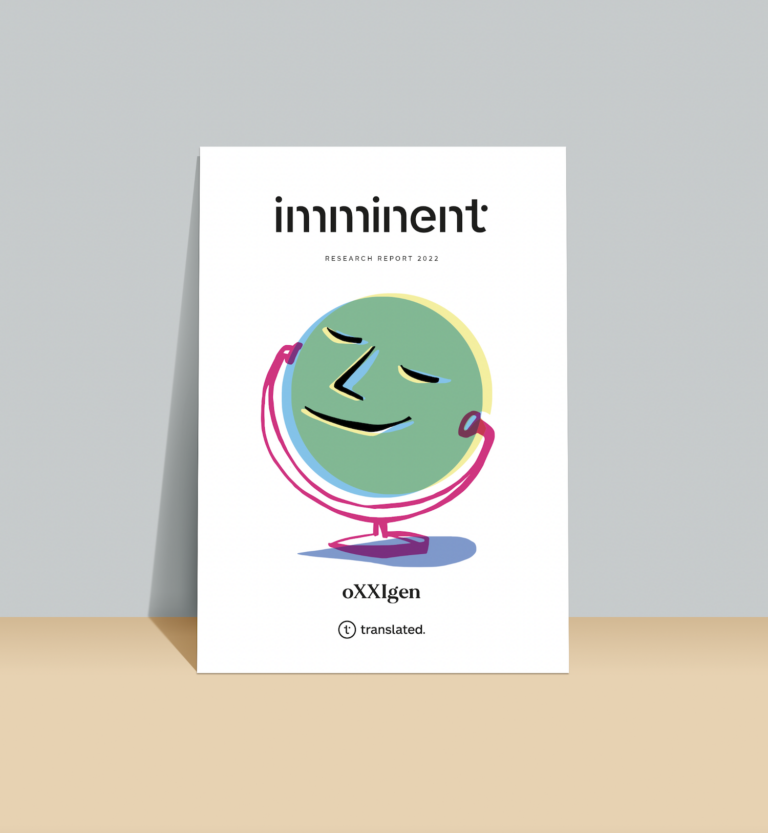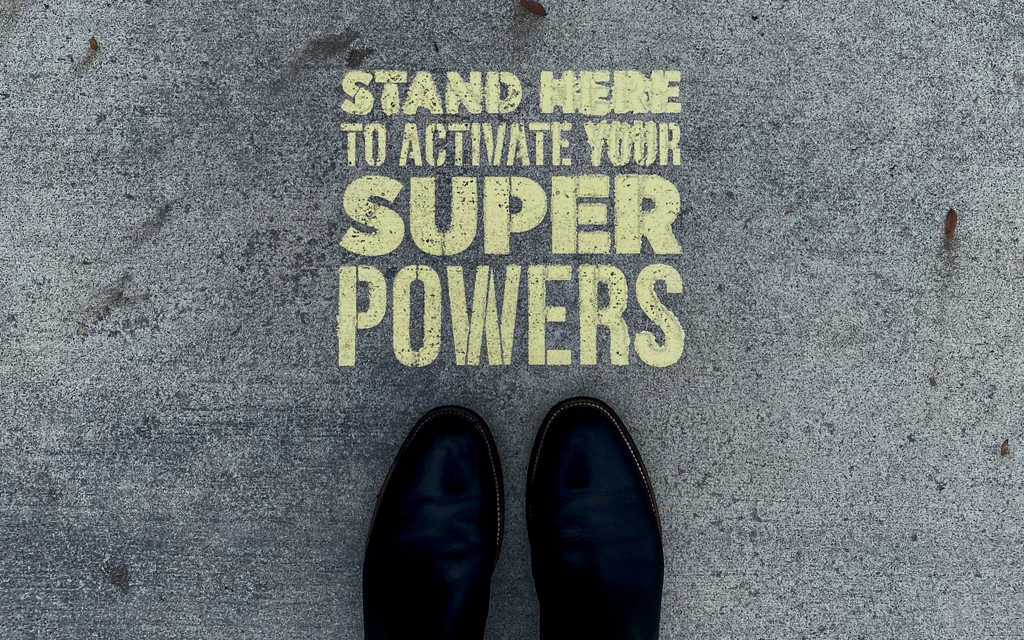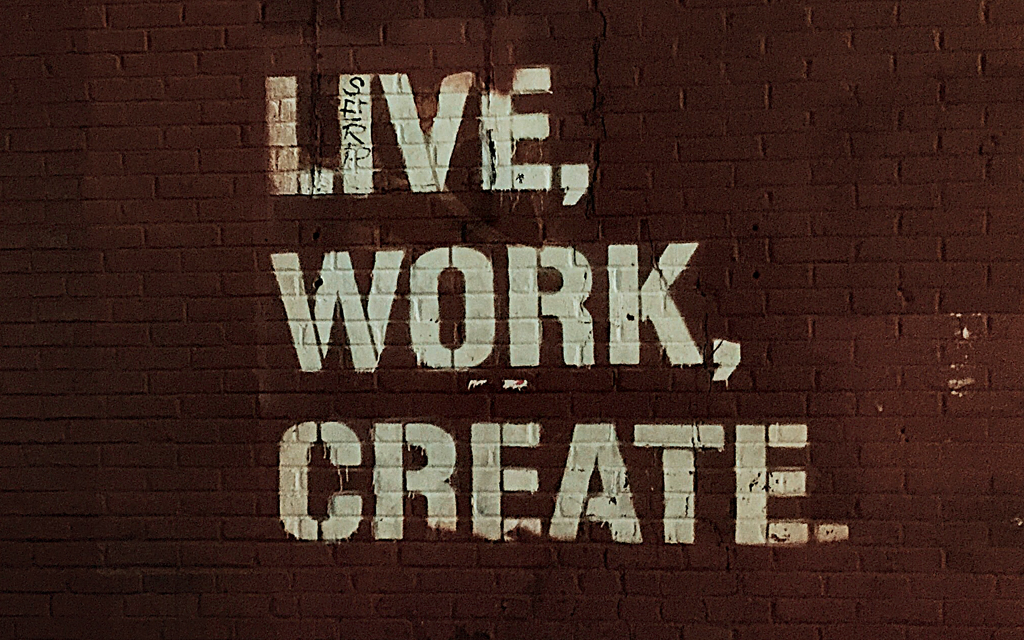Trends
Introduction
The very concept of work has changed ever since the International Labour Organization redefined it as including all activities that have value for society, even if they are not necessarily paid for in cash. But this somewhat academic perspective alone is not enough to understand the changes in the way we perceive, organise, carry out and develop the activities that have value for society, in a context that is undergoing major transformation. Since payment in cash is no longer intrinsically connected to the concept of work, other forms of exchange are emerging. The next step could be to identify which words can evoke the value society gives back to those who work: security, social prestige, quality of life, learning, experience, psychological balance, identity, and so on. Finally, what name will we give to the mix of different forms of value that workers could end up receiving in exchange for their commitment, beyond money: cultural growth, socialisation, fame, and so on. Perhaps the term will no longer be remuneration, but gratification. Professional work is likely to be one of the testing grounds for the work of the future, and these words relating to the future world of work could well emerge from this context. This is partly because, as professional workers have always known, the essential quality of work is not the “workplace”, but rather the function and project of the work being carried out. This is why, for example, we are unsure what to call the organisational model of work that has emerged from the pandemic: smart, agile, remote, hybrid? All unsatisfactory solutions, because they refer to the workplace rather than the meaning of the work. What are the words of the work of the future? The concept of a career, for example, has been superseded, but by what? By the experience of work, or by quality of life? If it’s no longer the person that adapts to the work but rather the work that adapts to the person, what should we call a work contract nowadays? A project? And what are the differences between all these words in different linguistic contexts?

oXXIgen
Imminent Research Report 2022
GET INSPIRED with articles, research reports and country insights – created by our multicultural interdisciplinary community of experts with the common desire to look to the future.
Get your copy nowIdentity
by Silvie van der Zee

A means to an end or part of our identity?
The concept of work is always changing, as are society and our communities. The pandemic taught us that not all work has to be done at the office, and not necessarily between 9am and 5pm.
So why do we work? I am a millennial, and from the point of view of millennials, work is not only a means to earn money, but also for personal growth and to contribute to society. More importantly, we work to live, not live to work. Most millennials are not workaholics, looking to get ahead as fast as possible in their career. We want to have fun, learn some- thing, make enough money to pay for our basic needs and then some. That’s why most millennials don’t stay with the same company for 25 years, like their parents. As soon as we feel we’ve learned enough or find that the grass is greener elsewhere, we leave. We value flexibility, like working from home or working flexible hours, more than a high salary.
As we’ve learned, it ́s not so much about the location of work, but rather the goal and purpose of the work that is done. Digital nomads have figured this out a while ago. Some of them don ́t even have a homebase anymore, and they all work remotely, whether they are web designers, translators or marketers, working for a company or freelancers. To them, work is a means to finance their way of living: traveling from place to place, whether it’s for a week or a couple of months. Freedom and flexibility are key, and lead to a higher quality of life. And isn’t that what we should aim for?
At the same time, for many people, work is more than just a means to an end. Most people feel pride in their work, and identify themselves with their profession. When I meet someone new, I tell them my name and that I’m a translator. Nevermind that I’m also a daughter, sister, partner, friend, Zumba enthusiast and travel lover. I identify first and fore- most as a translator. I take pride in what I do and feel connected to other translators. I know other translators feel the same way, and I suppose most people feel this way about their job.
Answering the question what the words of the work of the future should be, is tough. On the one hand, I think we should all put less emphasis on work and what we do and more on who we are when we’re not working, seeing work as only a part of our lives. On the other hand, the pride and gratification that comes from work, the way we identify ourselves as a translator, shop owner or business coach, is not something we should put aside easily. There is no easy way to describe a concept that is different to everyone. Let’s just stick with the broad term of ‘work’, and let everyone decide for them- selves what it means.
Dutch
Identiteit
Slechts een middel of een deel van onze identiteit?
Het concept ‘werk’ is altijd aan verandering onderhevig, net zoals de maatschappij en onze omgeving. Van de corona- crisis hebben we geleerd dat niet al het werk op kantoor gedaan hoeft te worden, en ook niet per se tussen 9 en 5. Waarom werken we eigenlijk? Ik ben een millennial en millennials zien werk niet alleen als een manier om geld te verdienen, maar ook als een middel voor persoonlijke ontwikkeling en om bij te dragen aan de maatschappij. En, nog belangrijker, we werken om te leven, niet andersom. De meeste millennials zijn geen workaholics die zo snel mogelijk carrière willen maken. We willen vooral werk dat leuk is, waar we wat van leren en waar we genoeg geld mee kunnen verdienen om de vaste lasten van te betalen en leuke dingen te doen. Daarom blijven de meeste millennials ook niet 25 jaar bij hetzelfde bedrijf werken, zoals hun ouders. Zodra we niets meer bijleren of ergens een betere of leukere baan vinden, zijn we weg. Flexibiliteit, zoals thuiswerken of flexibele werktijden, vinden we belangrijker dan een hoog salaris.
We weten nu dat de werkplek niet zo belangrijk is, maar dat het gaat om het doel en de betekenis van het werk. Digital nomads weten dat al heel lang. Sommigen hebben zelfs hun huis opgezegd en ze werken allemaal op afstand, of ze nu webdesigner, vertaler of marketeer zijn, in loondienst of freelance. Voor hen is werk een middel om hun manier van leven te financieren: ze reizen rond en verblijven ergens een week of zelfs een paar maanden. Vrijheid en flexibiliteit zijn het belangrijkst en dragen bij aan een goede kwaliteit van leven. Is dat niet waar het uiteindelijk om draait?
Toch is werk voor veel mensen veel meer dan een middel. De meeste mensen zijn trots op hun werk en identificeren zich met hun beroep. Als ik met iemand kennismaak, zeg ik hoe ik heet en dat ik vertaler ben. Dat ik daarnaast ook dochter, zus, partner, vriendin en reisfanaat ben en aan Zumba doe, doet er niet toe. Ik beschouw mezelf in de eerste plaats als vertaler. Ik ben trots op wat ik doe en voel me verbonden met andere vertalers. Ik weet dat andere vertalers dat ook zo voelen, en ik denk dat mensen met een ander beroep er net zo over denken.
Het is moeilijk om de vraag ‘hoe zullen we werk in de toekomst beschrijven?’ te beantwoorden. Enerzijds vind ik dat we ons werk minder belangrijk moeten maken en meer aandacht mogen geven aan wie we zijn wanneer we niet werken. Werk is tenslotte slechts een onderdeel van ons leven. Anderzijds zijn de trots en voldoening die we uit ons werk halen, en hoe we ons identificeren als vertaler, winkeleigenaar of businesscoach, ook niet iets om zomaar aan de kant te schuiven. Er is geen makkelijke manier om een concept te beschrijven dat voor iedereen iets anders betekent. Dus laten we het bij de brede term ‘werk’ houden en iedereen zelf laten bepalen wat dat voor hen betekent.

Dynamism
by Dita Ādmine
You have to admit, putting things off to the last minute has its own perks. Sure it’s related to some level of stress, but then again it’s given me the opportunity to spend as much time as possible thinking about what the title of this article means to me. So without any more hesitation, here they are – my Words of the Work of the Future (and no, procrastina- tion isn’t one of them… I hope).
MOVEMENT
Not that long ago, millions of people worldwide had no other choice but to see what it’s like to work remotely. For me, as a freelance translator and copywriter, things didn’t change that much, but for others… coincidence or not, I ha- ven’t heard a shingle “oh, freelancers’ life is so easy” ever since. What I have heard, though, is that many people, at first frustrated, now do not want to return to their offices. Just like me, they love the ability to move, and they will keep this freedom also in the future. Luckily more and more com- panies understand that people can do their jobs just as well (if not even better) from home, from bed, from the beach, the train… from any country in the world.
PASSION
I believe that this freedom of physical movement will un- lock new levels of open-mindedness and curiosity. In the future people will have more opportunities and – no less important – true interest in discovering what they are pas- sionate about and even make a living that way. Though it’s not crucial, not every passion can (or has to be) turned into a source of income. People now have the ability to master their own time schedules and work-to-life ratio, so it will be- come easier than ever to make time for passions. That is, if you’re lucky enough to actually find your one true passion… but that’s a discussion for another day.
COWORKING
I was never good at math, and yet here’s an equation:
Movement +Passion= Coworking
Makes sense? OK, I’ll explain. It’s unlikely that people will ever lose their need to belong, to share passions, to be part of a community. If anything, this need will only increase as remote work means more alone time without colleagues. From anti-cafés and coffee shops with stable internet con- nection to coworking spaces and start-up incubators, they will all play a major role in our future of work.
Now, did I deliberately include “coworking” as one of my words of the work of the future because my dream is to create a coworking village for digital nomads (and needed to say this idea out loud to make it seem real)? Maybe…
Latvian
Dinamika
Jāatzīst, ka darāmo darbu atlikšanai uz pēdējo brīdi ir savi plusi. Jā, tas nāk komplektā ar mazu stresiņu, bet, no otras puses, esmu sev devusi maksimālo laiku padomāt par to, ko tad īsti man nozīmē šī raksta tēma. Tāpēc, ko tur daudz ka- vēties? Lūk, vārdi, kas, manuprāt, raksturos darba dzīvi nā- kotnē (un, nē, “prokrastinācija” nav šo vārdu vidū… es ceru).
KUSTĪBA
Pavisam nesen miljoniem cilvēku nācās pārbaudīt uz savas ādas, ko nozīmē attālināts darbs. Man kā pašnodarbinātai tulkotājai un reklāmas tekstu autorei darba ziņā gan nekas īsti nemainījās, taču citiem… nezinu, vai sakritība, bet tā arī vairs neesmu dzirdējusi kādu sakām: “O, nu pašnodarbinā- tajiem jau gan viegla dzīve.” Lai gan sākotnēji liela daļa par piespiedu izmaiņām nebija īpaši priecīgi, arvien biežāk dzir- du, ka cilvēki vairs nevēlas atgriezties birojos. Viņi tāpat kā es izbauda iespēju būt kustībā un vēlas to baudīt arī nākot- nē. Par laimi, arvien vairāk uzņēmumu saprot, ka darbu ļoti labi (ja pat ne labāk) var izdarīt arī tad, ja darbinieks atrodas mājās, negrib kāpt ārā no gultas, gozējas pludmalē, sēž vil- cienā vai ir aizceļojis uz otru pasaules malu.
SIRDSLIETA
Es ticu, ka brīvība fiziski atrasties, kur vien vēlies, padarīs cilvēkus atvērtākus un rosinās zinātkāri par apkārtējo un pašiem par sevi. Nākotnē cilvēkiem radīsies arvien jaunas iespējas un – ne mazāk svarīgi – interese atklāt, kas ir viņu sirdslieta, un, iespējams, pat nopelnīt iztiku ar to. Lai gan tas nav būtiskākais, ne visas sirdslietas var (un vajag) pārvērst par ienākumu avotiem. Tagad cilvēkiem ir iespēja pašiem pārvaldīt savu laiku un darba grafiku, tāpēc nākotnē būs ar- vien vieglāk rast balansu starp strādāšanu un nodošanos sirdslietām. Tas, protams, ja paveicas un patiešām izdodas atrast savu īsto un vienīgo sirdslietu, bet tā jau ir saruna citai dienai.
KOPSTRĀDE
Matemātika man nekad nav padevusies, bet es riskēšu. Lūk, vienādojums:
KUSTĪBA + SIRDSLIETA = KOPSTRĀDE
Pašsaprotami, vai ne? Nu labi, paskaidrošu. Ļoti maz ticams, ka cilvēki zaudēs vēlmi iederēties, dalīties citam ar citu, būt daļai no kopienas. Es ticu, ka šī vēlme nākotnē tikai pieaugs, jo attālināts darbs nozīmē, ka kolēģi vairs nav līdzās katru dienu. Tāpēc arvien lielāka nozīme mūsu darba dzīvēs būs kafejnīcām ar stabilu internetu, kopstrādes telpām, start-up inkubatoriem un varbūt pat vēl grandiozākām idejām.
Vai es apzināti iekļāvu “kopstrāde” kā vienu no vārdiem, kas, manuprāt, raksturos nākotnes darba dzīvi, jo mans sapnis ir kādā siltā zemē radīt veselu ciematu, kur pulcētos attāli- nāti strādājošie (un bija pienācis laiks šo ideju izteikt skaļi)? Iespējams.

Perspective
By Alexis Malalan
From a freelancer’s perspective, there’s no doubt that the way we work has changed drastically in recent years, al- though the adaptation has been much more natural and gradual for us lucky ones who have been working remotely since 15 years. The change is not so much about the tools, but more about the nature and organization of the work. Where a copywriter once had to juggle multiple tasks, work has narrowed to a specialization. We become more and more “niche” workers, according to our skills and our affinities. The other aspect where the evolution has been significant is the balance between professional and private life. When you answer your emails at midnight and share professional projects with your friends, where does work stop and where does the rest of life begin?
Words beyond tools
To qualify these big changes, it is necessary to add another dimension: the cultural and linguistic dimension. Beyond new tools and relocated offices, what do our words and our perceptions say? Are they changing as fast as our society? In French, the word “work” (“travail”) has had an ambiguous, often negative and controversial connotation for centuries. Linguistically speaking, it defines at the same time the work which one carries out to be remunerated, the activities of cleaning the house (“travaux ménagers”), the arduous tasks to which the prisoners are compelled (“travaux forcés”), but also the process of giving birth to a child, with all the pain it can cause. Note that not all French speakers have the same perception of work: in Switzerland, for example, the influence of Protestant morals has given work a much more positive and liberating meaning than in France, where work is subject to political debates, disputes and constant questioning. It is generally opposed to the word “employment” (“emploi”) or “activity” (“activité”) which have a much more optimistic and inspiring meaning, since they refer to the fact of being paid, of not staying at home without doing anything, of having value in the eyes of society.
Work is changing – not words
That said, the word “travail” is so deeply rooted in French culture that at a time of major paradigm shifts, no other word has been able to replace it. We thus speak of “télétravail” or “travail à distance”, which clearly shows that, even if the tools and workplaces have changed, the activity of working remains invested with this half-functional, half-ambiguous and often negative meaning that it has always had. Basically, it makes you wonder whether, despite the current evolutions, the perception that a French speaker will have of work will not always be a little tinged with a certain suspicion. Rather than the platforms, the places or the words themselves, isn’t it rather the relationship to work that should be rethought?
FRENCH
Du point de vue d’un freelance, il est indéniable que le pay- sage du travail a été radicalement bouleversé ces dernières années, même si l’adaptation a été beaucoup plus naturelle et progressive pour nous, les chanceux qui expérimentent le travail à distance depuis désormais 15 ans. Plus qu’au ni- veau des outils eux-mêmes, c’est surtout au niveau de la nature et de l’organisation du travail que le changement a été marqué. Là où un copywriter devait autrefois jongler entre plusieurs tâches, le travail s’est restreint à une spécialisation. On devient de plus en plus, en fonction de nos compétences et de nos affinités, des travailleurs « de niche ». L’autre aspect où l’évolution a été la plus importante, c’est la question de l’équilibre entre vie professionnelle et vie privée. À l’heure où l’on répond à ses e-mails à minuit et où l’on partage des projets avec ses amis, où s’arrête le travail et où commence le reste de la vie ?
Les mots au-delà des outils
Pour nuancer ces bouleversements, il faut néanmoins ajouter une autre dimension : la dimension culturelle et linguistique. Car au-delà des nouveaux outils et des bureaux délocalisés, que disent nos mots et nos perceptions ? Évoluent-ils aussi vite que notre société ? En français, le mot « travail » a de- puis des siècles une connotation ambigüe, souvent négative et controversée. Linguistiquement parlant, il définit à la fois le travail que l’on effectue pour être rémunéré, les activités d’entretien de la maison (les « travaux ménagers »), les tâches ardues auxquelles sont astreints les prisonniers (les « travaux forcés »), mais aussi le processus d’accouchement d’un enfant, avec toutes les douleurs qu’il peut engendrer. À noter que tous les francophones n’ont pas la même perception du travail : en Suisse, par exemple, l’influence de la morale protestante a donné au travail un sens beaucoup plus positif et libérateur qu’en France, où le travail est objet de débats politiques, de différends et de remises en question constantes. On lui oppose en général les mot « emploi » ou « activité » qui ont, eux, une signification beaucoup plus optimiste et inspirante, puisqu’ils se réfèrent au fait d’être rémunéré, de ne pas rester chez soi sans rien faire, d’avoir une valeur aux yeux de la société.
Le travail change, pas les mots
Ceci dit, le mot « travail » est tellement ancré dans la culture francophone qu’à l’heure des grands changements de paradigme, aucun autre mot n’a su le remplacer. On parle ainsi de « télétravail » ou de « travail à distance », ce qui montre bien que, même si les outils et les lieux de travail ont changé, l’activité reste investie de cette signification mi-fonctionnelle, mi-ambigüe et souvent négative et pénible qu’elle a toujours eue. Au fond, c’est à se demander si, malgré les bouleversements actuels, la perception qu’un francophone aura du travail ne sera pas toujours un peu teintée d’une certaine suspicion. Plutôt que les plateformes, les espaces ou les mots eux-mêmes, n’est-ce pas plutôt le rapport au travail qu’il faudrait repenser ?
Photo credits: Douglas Sanchez, Unsplash / Jon Tyson, Unsplash / Adrian Cuj, Unsplash
